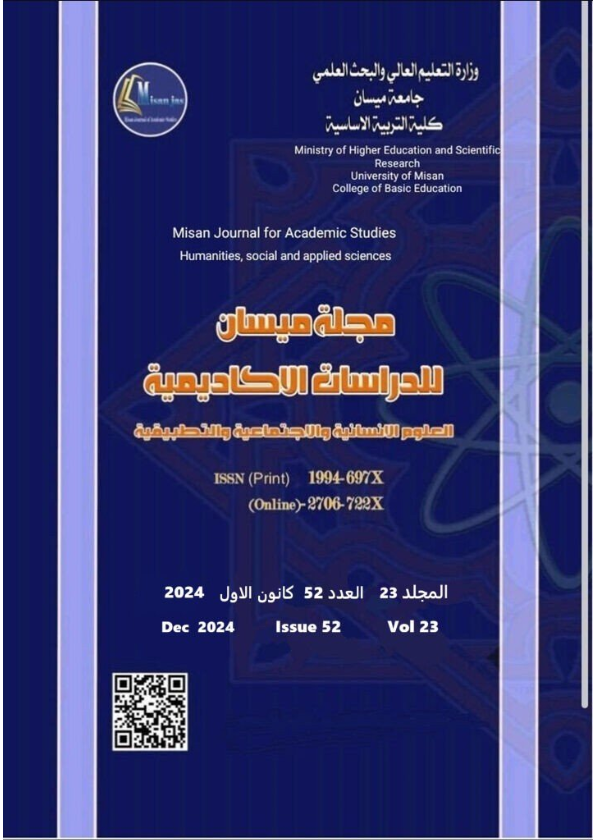Assessment of the surface hardness of high-impact polymethylmethacrylate following long-term dipping in clove oil solution
Abstract
Clove oil disinfects polymethylmethacrylate. Post-clove oil solution immersion high-impact polymethylmethacrylate surface hardness was examined. Thirty high-impact polymethylmethacrylate specimens were used and divided into control, 2% clove oil solution, and 6% clove oil solution groups. Shore-D tester measured surface hardness. Data was analyzed using the Shapiro-Wilk test, one-way ANOVA at 5% significance, using the SPSS software. The highest surface hardness mean was 6% (80.07), followed by 2% (79.96) and control (79.93). In this study, clove oil didn't affect surface hardness. 2% and 6% groups had similar surface hardness to the control group.
Downloads
Copyright (c) 2024 (Humanities, social and applied sciences) Misan Journal of Academic Studies

This work is licensed under a Creative Commons Attribution-NonCommercial-NoDerivatives 4.0 International License.
The copyright is also the copyright of the magazine only.
All articles published in our magazine are subject to license terms
Creative Commons Attribution(CC BY-NC-ND 4.0) This license permits the content to be reproduced, redistributed and reused in whole or in part for any purpose free of charge, without any permission from the author(s), researcher or student.
Works submitted to Maysan Journal of Academic Studies for publication in the journal (CC BY-NC-ND 4.0) license terms. Where available content can be shared, distributed and replicated provided there is no commercial profit and appropriate credit must be given to the original source through sources or citations. It is mandatory to review any material used from other sources including shapes, tables, and images for re-use under the terms of the Creative Commons License (CC BY-NC-ND 4.0).Provided that there is no modification to the original content



